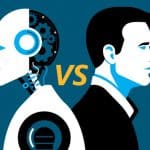In recent times, we’ve all heard the buzz and rising concerns surrounding Artificial Intelligence (AI). From the story of Skynet in Terminator to apocalyptic predictions of machines taking over jobs, many are gripped by fear. There’s a growing anxiety that AI will replace human intelligence and render us obsolete. But is this fear justified?
Personally, I’ve been working with various AI platforms—ranging from ChatGPT in its different versions to generative AI tools like Leonardo, Kling, Luma, and others. I have seen firsthand how powerful and fascinating AI outputs can be. However, even though these tools create astonishing results, they will never reach the complexity, creativity, and sheer brilliance of the human mind.
Why? Because AI, at its core, is merely a tool. It is built to assist, to reduce the time taken to complete repetitive tasks, to automate the mundane. What it lacks is the heart and soul of human decision-making—the ability to feel, to interpret emotions authentically, and to connect through personal experiences.
Understanding the Fear: A Call to Intellectual Growth
The ones who fear AI are often those who haven’t yet fully developed their own intellectual capacity. They see a powerful machine producing quick results and imagine it surpassing human capability. But this fear comes from a lack of understanding of both AI and the true potential of the human brain. Instead of being paralyzed by fear, we should focus on continually expanding our own intellectual horizons. As Socrates said, “The only true wisdom is in knowing you know nothing.” We should constantly be reading, experimenting, debating, discussing, and strengthening our minds to form an unshakable foundation—one that no machine can ever mimic or replace.
The Human Edge: Emotion, Instinct, and Inspiration
Let’s break it down. AI can process data at unimaginable speeds, predict outcomes based on previous patterns, and even simulate emotional responses using complex algorithms. But, the human brain remains unparalleled in three critical areas: emotion, instinct, and inspiration.
- Emotional Intelligence: AI can replicate emotions using formulas and IF statements, but can it truly understand grief or joy? It might be able to express sadness with a pre-set response, but it cannot mourn a loss or feel the thrill of a victory. Human emotions are messy, unpredictable, and deeply personal. This complexity gives us the unique ability to inspire, to connect, and to move people. As Maya Angelou wisely said, “People will forget what you said, people will forget what you did, but people will never forget how you made them feel.” AI will never reach that level of emotional depth.
- Instinctive Decision-Making: Take, for example, the movie I, Robot. The AI’s decisions were bound by rigid formulas, unable to comprehend the nuances of human values. The choice of saving a life cannot be reduced to a mathematical formula. Even a 1% chance of survival might be enough for a human to take a risk. The human brain is wired to make decisions based on a mix of logic, instinct, and sometimes just a gut feeling. AI lacks this intricate web of human instincts and perceptions.
- Creativity and Inspiration: AI-generated art, music, or writing can seem impressive, but it lacks the essence that only a human can infuse. Creativity isn’t just about generating content; it’s about conveying a story, inspiring through experiences, and connecting with the audience. It’s like looking at a well-made print of a famous painting—it might be visually accurate, but it will always lack the true artist’s intent and soul.
AI as a Tool, Not a Threat
So, should we fear AI? Absolutely not. Instead, we need to see it as a tool that can amplify our abilities. AI can be our greatest ally in completing monotonous jobs, sifting through huge volumes of data, and speeding up decision-making in structured environments. But it cannot replace human ingenuity, emotional insight, or the creative spark that drives progress.
Even now, as more data flows into platforms like ChatGPT, we see its limitations. It stumbles with too much information, struggles with context, and starts to produce repetitive patterns. The human brain, on the other hand, is the most efficient data processor known to mankind. It doesn’t just store data—it organizes it, contextualizes it, and, most importantly, uses it to create meaning and wisdom.
How to Stay Ahead: Building a Stronger Mind
Rather than fearing AI, people need to focus on building their own capacities. Start by:
- Continuously Learning: Read widely, explore new fields, and challenge yourself. Knowledge builds resilience.
- Strengthening Critical Thinking: Don’t just absorb information—question it, debate it, analyze it. This will sharpen your intellectual edge.
- Cultivating Emotional Intelligence: Practice empathy, understand your emotions, and build strong interpersonal skills. AI can never match a person who is emotionally intelligent.
- Embracing Creativity: Spend time on creative endeavors, whether it’s writing, painting, or simply brainstorming ideas. Creativity is the most human trait that AI will always struggle to replicate.
- Leveraging AI as an Assistant: Use AI to support your growth, not replace it. Let AI handle mundane tasks, freeing up your mind to focus on what really matters—thinking, creating, and leading.
The Final Thought: Co-Exist, Don’t Compete
AI is not our competitor; it is our creation. It’s meant to be our subordinate, a helper to elevate our productivity and free us from repetitive tasks. The more we learn to use it effectively, the more we will unlock its true potential—not as a replacement, but as a tool for human empowerment.
Instead of fearing AI, build yourself around it. Embrace its strengths, focus on what makes us unique, and keep growing. Because there is absolutely no way AI will ever reach the depths of the human mind. As Steve Jobs once said, “Technology is nothing. What’s important is that you have a faith in people, that they’re basically good and smart, and if you give them tools, they’ll do wonderful things with them.” AI is just that—a tool. It’s up to us to decide what we create with it.


